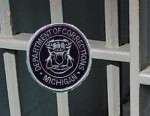A Michigan appeals court has overturned part of a $317,000 jury award to a woman in a lawsuit against Mt. Hope Church, a megachurch located near Lansing, for negligence, libel and slander. The court upheld the $40,000 award for negligence but ordered a new trial on the other claims. See the full ruling here.
The case began when Judith Dadd, a longtime member of the church, responded to an altar call during a church service in July, 2002. She says she was “slain in the spirit,” a common event in charismatic churches where a worshiper is so overcome with emotion that they pass out and fall backwards. During such services, churches usually have ushers standing by to catch them, but in this case no one caught Dadd and she fell and hit her head.
Dadd asked the church to cover the medical bills that resulted from the fall but the church said that their insurance company would only cover $5,000. She retained a lawyer and filed a complaint for negligence, citing the fact that the pastor of the church, Dave Williams, had specifically told the congregation not to be afraid to come forward for altar calls because their ushers were specially trained to catch people who were slain in the spirit.
After the suit was filed, Pastor Williams told members of the church that he believed Dadd was faking her injuries, was trying to commit insurance fraud and that the entire situation was premeditated by Dadd to extort money from the church. Dadd then filed an amended complaint, adding charges against Williams for portraying her in a false light, libel and slander.
The appeals court ruled that the trial court judge erred in not instructing the jury that the pastor’s communications with members of the church might be subject to a qualified privilege. That means the plaintiff had to meet an extra burden on the false light, libel and slander charges in order to prove her case. Because the jury was instructed on the wrong legal standard by which to evaluate the evidence, the appeals court reversed the jury awards on those charges and ordered a new trial with a new jury to consider those matters.




